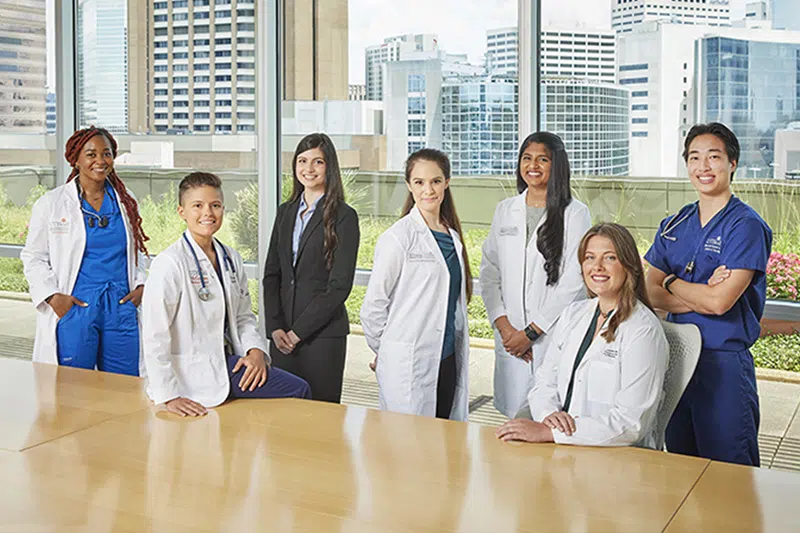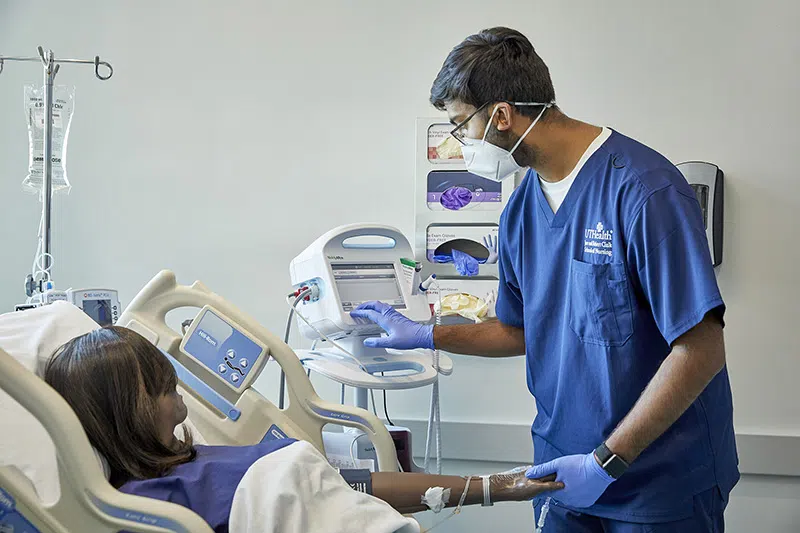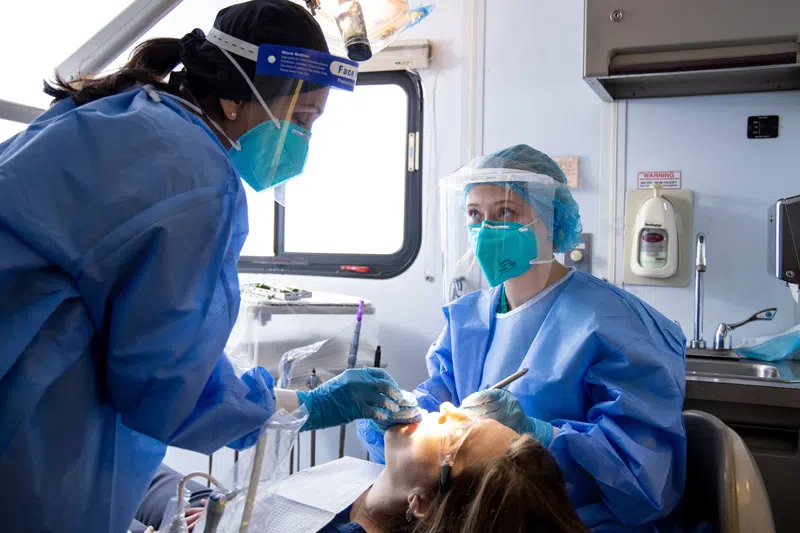MS Public Seminar: Kirstin Anne Risgaard
When & Where
April 1, 2024
2:00 PM - 3:00 PM
Contact
- Academic Affairs
- [email protected]
Event Description
Sleep Disturbances in Adults with TSC: Influences of Treatment and Clinical Features
Advisor: Kate Richardson, MS, CGC
Tuberous sclerosis complex (TSC) is a rare genetic condition caused by pathogenic variants in the TSC1 or TSC2 gene. TSC is characterized by a multisystem, neurocutaneous phenotype including skin lesions, hamartomas, and epilepsy. Additionally, TSC can present with an array of neuropsychological difficulties comprehensively known as TAND, or TSC-associated neuropsychiatric disorders. Sleep disorders are a common feature of TAND; however, they are not well characterized in the adult TSC population. Likewise, little is known about how clinical features of the condition and commonly prescribed medications impact sleep. Therefore, this study aimed to determine the prevalence of sleep disorders in adults with TSC and identify the impact of TSC clinical features and prescribed medications on sleep. Adults diagnosed with TSC over the age of 18, with or without cognitive impairment, were recruited through the TSC Alliance Listserv and the University of Texas Houston Health Science Center TSC Center of Excellence clinic. To quantitatively analyze sleep, the Pittsburgh sleep quality index (PSQI) was administered to the 84 participants enrolled in the study. Information regarding demographic characteristics, lifestyle factors, neuropsychiatric features of TSC, and self-reported prescribed medication use were collected. Of the cohort, 64% (n=54) were classified as having poor sleep based on their PSQI score. Participants with mental illness, anxiety, and depressive thoughts were found to be more likely to have severe sleep issues (p=0.009, p=0.04, p=0.029, respectively). Those who self-reported taking mTOR inhibitors, antiepileptic drugs, or antidepressants were also more likely to have severe sleep problems (pAD=0.016, pmTORi<0.001, pAEDs=0.045). Epilepsy was not found to be a risk factor for an increased incidence of sleep disorders (p=0.062). Our study expanded the current understanding of sleep disorders in TSC and concluded that poor sleep quality is a significant TAND feature within the adult TSC population. Given the multifactorial nature of sleep, we identified potential clinical features and medications that increase the frequency of dysfunctional sleep. We recommend providers carefully assess sleep in the adult TSC population while taking into consideration the interaction of other clinical features and medications to provide comprehensive care and to improve quality of life of individuals with TSC.
Advisory Committee:
Kate Richardson, MS, CGC, Chair
Laura Farach, MD
Syed Hashmi, MD, PhD
Deborah Pearson, PhD
Hope Northrup, MD
Sarah Wilson, MD
Attend via Teams
Sleep Disturbances in Adults with TSC: Influences of Treatment and Clinical Features
Advisor: Kate Richardson, MS, CGC
Tuberous sclerosis complex (TSC) is a rare genetic condition caused by pathogenic variants in the TSC1 or TSC2 gene. TSC is characterized by a multisystem, neurocutaneous phenotype including skin lesions, hamartomas, and epilepsy. Additionally, TSC can present with an array of neuropsychological difficulties comprehensively known as TAND, or TSC-associated neuropsychiatric disorders. Sleep disorders are a common feature of TAND; however, they are not well characterized in the adult TSC population. Likewise, little is known about how clinical features of the condition and commonly prescribed medications impact sleep. Therefore, this study aimed to determine the prevalence of sleep disorders in adults with TSC and identify the impact of TSC clinical features and prescribed medications on sleep. Adults diagnosed with TSC over the age of 18, with or without cognitive impairment, were recruited through the TSC Alliance Listserv and the University of Texas Houston Health Science Center TSC Center of Excellence clinic. To quantitatively analyze sleep, the Pittsburgh sleep quality index (PSQI) was administered to the 84 participants enrolled in the study. Information regarding demographic characteristics, lifestyle factors, neuropsychiatric features of TSC, and self-reported prescribed medication use were collected. Of the cohort, 64% (n=54) were classified as having poor sleep based on their PSQI score. Participants with mental illness, anxiety, and depressive thoughts were found to be more likely to have severe sleep issues (p=0.009, p=0.04, p=0.029, respectively). Those who self-reported taking mTOR inhibitors, antiepileptic drugs, or antidepressants were also more likely to have severe sleep problems (pAD=0.016, pmTORi<0.001, pAEDs=0.045). Epilepsy was not found to be a risk factor for an increased incidence of sleep disorders (p=0.062). Our study expanded the current understanding of sleep disorders in TSC and concluded that poor sleep quality is a significant TAND feature within the adult TSC population. Given the multifactorial nature of sleep, we identified potential clinical features and medications that increase the frequency of dysfunctional sleep. We recommend providers carefully assess sleep in the adult TSC population while taking into consideration the interaction of other clinical features and medications to provide comprehensive care and to improve quality of life of individuals with TSC.
Advisory Committee:
Kate Richardson, MS, CGC, Chair
Laura Farach, MD
Syed Hashmi, MD, PhD
Deborah Pearson, PhD
Hope Northrup, MD
Sarah Wilson, MD
Attend via Teams
\n\n", "startDate":"2024-4-1", "endDate":"2024-4-1", "startTime":"14:00", "endTime":"15:00", "location":"$con.location", "label":"Add to Calendar", "options":[ "Apple", "Google", "iCal", "Microsoft365", "MicrosoftTeams", "Outlook.com", "Yahoo" ], "timeZone":"America/Chicago", "trigger":"click", "inline":true, "listStyle":"modal", "iCalFileName":"Reminder-Event" }









